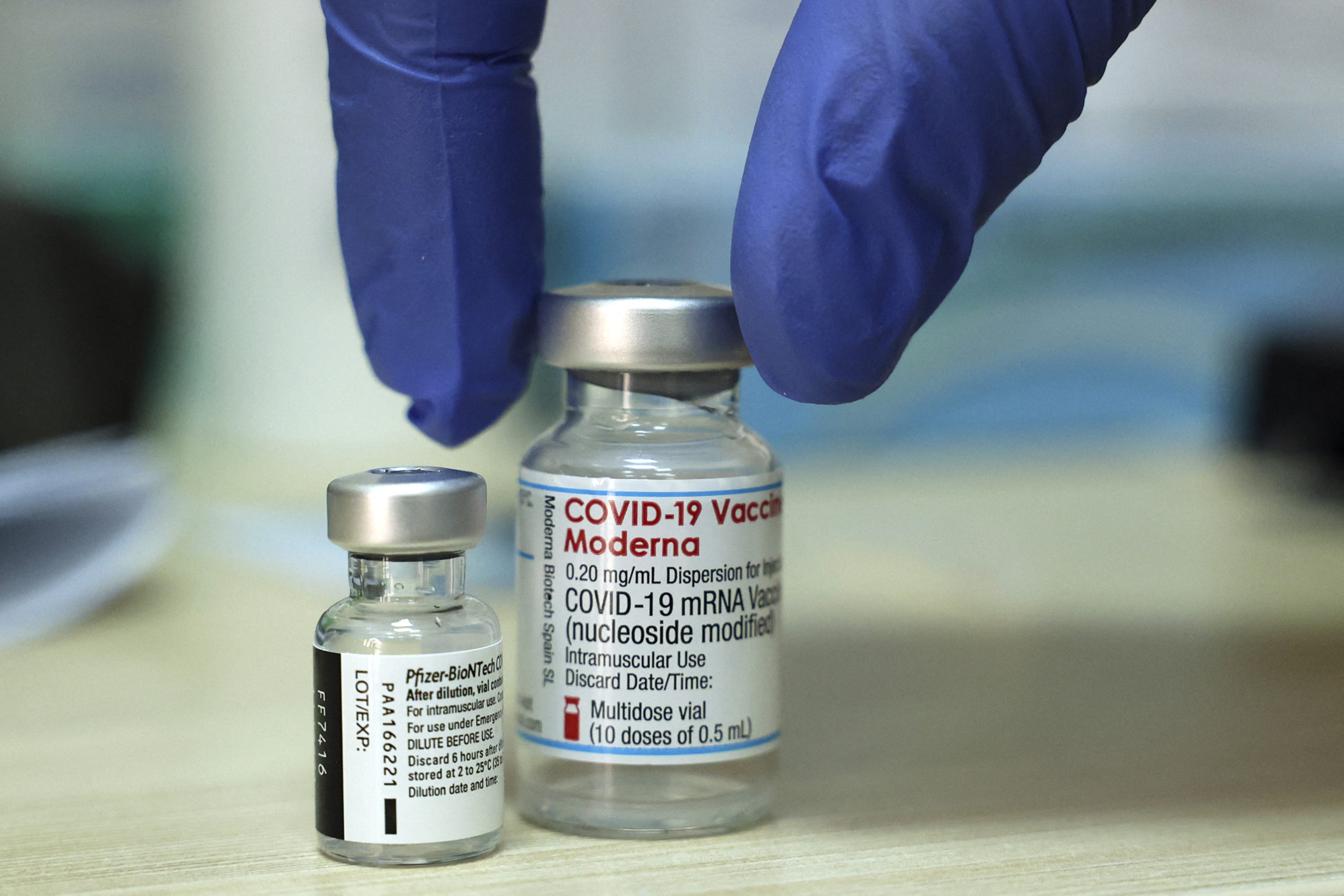
(FILES) In this file photo taken on August 10, 2021, a medic places two vials of COVID-19 coronavirus vaccines (L to R): Pfizer-BioNTech and Moderna, on a table before administering doses at a Clalit Health Services Medical Centre in east Jerusalem. – The US Food and Drug Administration (FDA) on Wednesday authorized using a so-called “mix and match” strategy for eligible people who require a booster shot of a Covid vaccine after their primary series. (Photo by HAZEM BADER / AFP)
WASHINGTON — The US Food and Drug Administration (FDA) on Wednesday authorized using a so-called “mix and match” strategy for people who require a booster shot of a Covid vaccine after their primary series.
“The FDA has determined that the known and potential benefits of the use of a single heterologous booster dose outweigh the known and potential risks of their use in eligible populations,” the agency said in a statement.
The Pfizer, Moderna, and Johnson & Johnson vaccines are authorized in the United States. A single dose of any of them may now be used following completion of primary vaccination with a different Covid vaccine.
According to the new decision, people who received two Moderna shots initially and are 65 or older, over 18 and at high risk for Covid, or over 18 and have high occupational exposure, may now receive a booster.
All adults who received the one-shot J&J vaccine more than two months ago are also eligible for a booster.
Previously, only immune-compromised people or people who belonged to elderly or high-risk groups and had received the Pfizer vaccine initially were eligible for a boost.
The data supporting the decisions come from emerging research reviewed by the FDA.
“Today’s actions demonstrate our commitment to public health in proactively fighting against the Covid-19 pandemic,” said acting FDA commissioner Janet Woodcock.
The statement also cautioned of highly rare side effects associated with the vaccines.
The messenger RNA vaccines, Pfizer and Moderna, have been associated with increased risks of inflammatory heart conditions, myocarditis, and pericarditis, especially in younger males.
The J&J vaccine has been linked to a serious and rare type of blood clot in combination with low blood platelets one or two weeks after administration. The risk is highest among females ages 18 through 49 years.